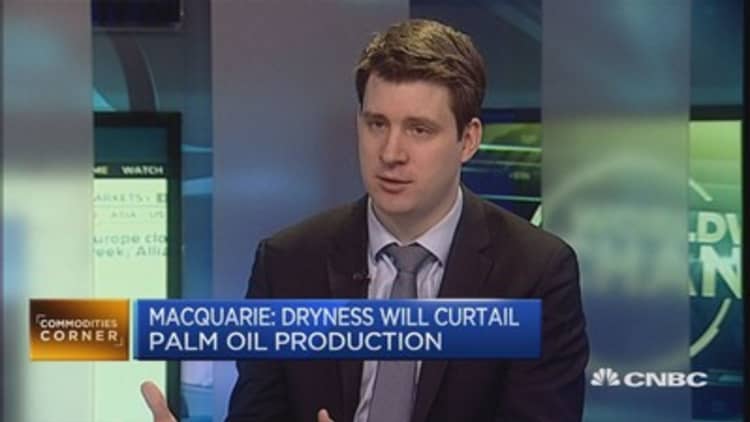Cane sugar prices are being beaten down—helping to keep processed food prices low around the world.
With July sugar futures hitting new six-year lows of 11.44 cents a pound in New York on Monday and trading around 11.48 cents on Tuesday, there is disagreement among analysts over whether the bottom of the market is in sight.
Sugar inventories are forecast to expand by 304,000 tons this year, according to the International Sugar Organization.
Kona Haque, head of research at agricultural commodities trading firm ED&F Man, argued that sugar prices were close to the bottom of the market.
On the other hand, Victoria Crandall, soft commodities analyst at Ecobank, said "prices won't bottom out in the near term."
What there is agreement on is that the fundamentals of the market are skewed.
"These are the classic symptoms of an oversupplied market," Haque told CNBC.
AGRICULTURE FUTURES
Sugar has a longer life cycle than crops like wheat, so it is more difficult for farmers to adapt quickly to market dynamics. Decisions taken to increase production during the last boom in sugar prices, back in 2010-2011, are therefore still affecting supply.
"There's lots of sugar on the market and there's been a surplus now for going on five years. Demand just can't keep up," Crandall told CNBC.
One factor at play is the weakness of the real, the currency of Brazil, the world's biggest sugar exporter. As the U.S. dollar has stayed strong, Brazilian farmers can take lower prices in the dollar-denominated sugar market.
"This is really being led by Brazil. With the weakening real, farmers are still incentivised to produce," Crandall said.

In India, another big emerging markets producer, a record crop is expected this year, as government subsidies help boost production.
While there is a surplus, there doesn't seem to be any waning in demand, despite Western concerns about the health impact of sugar.
"Any dip in the Western market gets replaced by the increased appetite in emerging markets," Haque pointed out.


